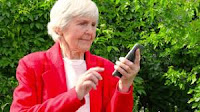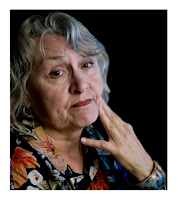 "Being Vaccinated," as a therapist deals with her patient's aversion to receiving the Covid19 vaccine, the patient-therapist relationship comes to the fore, as does the question of caring and being cared for.
"Being Vaccinated," as a therapist deals with her patient's aversion to receiving the Covid19 vaccine, the patient-therapist relationship comes to the fore, as does the question of caring and being cared for.
“So I know I’m locked in the house like everyone else and hating it and ready to strangle my husband, but I really need to talk to you about my daughter. She’s driving me crazy,” Paula says, barely stopping for a breath. “She just doesn’t stop. ‘Mom, did you get the vaccine? Have you tried getting the vaccine? Have you signed up through the Department of Health? Did you try your local grocery store? What about Dad?’ She doesn’t stop. You have to tell me what to do.”
Paula, who I’ve only ‘seen’ for a few sessions via the telephone, is a seemingly headstrong, stubborn, opinionated 67 year old woman. “What should you do about…? I ask.
“About her of course! What should I do about my daughter constantly bugging me?”
“What have you done?”
“Nothing.”
“Nothing? But what do you say to your daughter when she asks you about being vaccinated?”
“I just put her off, you know, like saying ‘not yet’ or ‘it’s not in the area yet.’”
“Do you plan to get the vaccine?”
“Not if I can help it!”
“Because…?”

“I’m not into being a guinea pig! Who knows what the government is putting into those vaccines? How do we know they’re safe? They’re so new. Maybe they’re giving it to all us old folks first because they think we’re disposable. Who cares if some old people die! I didn’t trust Trump and I don’t trust Biden any more.”
Although I knew that Paula was distrustful of others, I hadn’t recognized the extent of her suspiciousness. I tread carefully. “So why haven’t you told that to your daughter?”
She scoffs. “My daughter’s a doctor. She’ll laugh at me and tell me I’m crazy.”
Although I find myself agreeing with my patient’s daughter, I stall for time by asking an inane question. “What does your husband think?”
“He doesn’t care. He’ll do whatever I say. We’re both healthy. I mean I know we’re both over 65, but we’re in good health. Why take any chances?”
“And yet you’re comfortable taking your chances with Covid?”
“Maybe.”
“I’m sorry. I’m not sure what you mean.”
“How do we know the whole thing isn’t a hoax? Maybe there is no Covid. Maybe it’s all just a big scam.”
“And what would be the purpose of this scam?”
“I don’t know. Maybe to try out these experimental drugs for some future disease, some other virus that strikes 25, 100 years from now. Who knows.”
I sit with my anxiety for a moment until what I hope is aninspiration strikes me. “You know, Paula, since you’re so reluctant to share your reservations about the Covid vaccines with your daughter, I’m impressed that you feel comfortable telling me about them.”
Silence. The silence continues.
“Paula, are you there?”
“I’m here.”
“Okay. Good.”
Silence.
“I’m supposed to tell the truth here, right?”
“Yes. That’s definitely helpful.”

“Well I know this sounds terrible, but I can tell you because you don’t matter. My daughter matters to me. What she thinks of me matters to me. What you think of me doesn’t matter because you don’t matter to me. I pay you to give me a service. Beyond that you’re irrelevant. Does that sound terrible?”
“Well,” I say cautiously, “it’s definitely honest.” I pause, trying to gather my thoughts and think of an appropriate response. Speaking softly, I say, “I wonder what it means that I don’t matter to you, that you can so easily dismiss me as irrelevant. I wonder who in your life has made you feel you don’t matter. I wonder if you yourself feel you don’t matter. And I wonder if one of the reasons you’re so suspicious about the virus or the vaccines is that it’s hard to believe that anyone could feel you’re important enough to care about.”
“Are you saying I should care about you?” Paula responds, understandably not able to take in what was a long, complicated interpretation.
“Only you can answer that.”
“Well, I don’t know if I can or if I should care about you.”
“I understand. I think perhaps our first questions should be whether you’re able to care about you and whether you’ve felt cared about by important people in your life.”
“You mean like my parents?”
“Yes. As well as others.”
“I told myself I wasn’t going back, that I wasn’t going to dredge all that stuff up.”

“Yet you chose to see me, a psychoanalyst, so perhaps part of you wants to dredge all that stuff up.”
“Nonsense!”
“But we’re meeting again next week, right?”
“I suppose,” Paula responds grudgingly.
“I’m glad to hear that. I’ll talk to you then.”
![]()